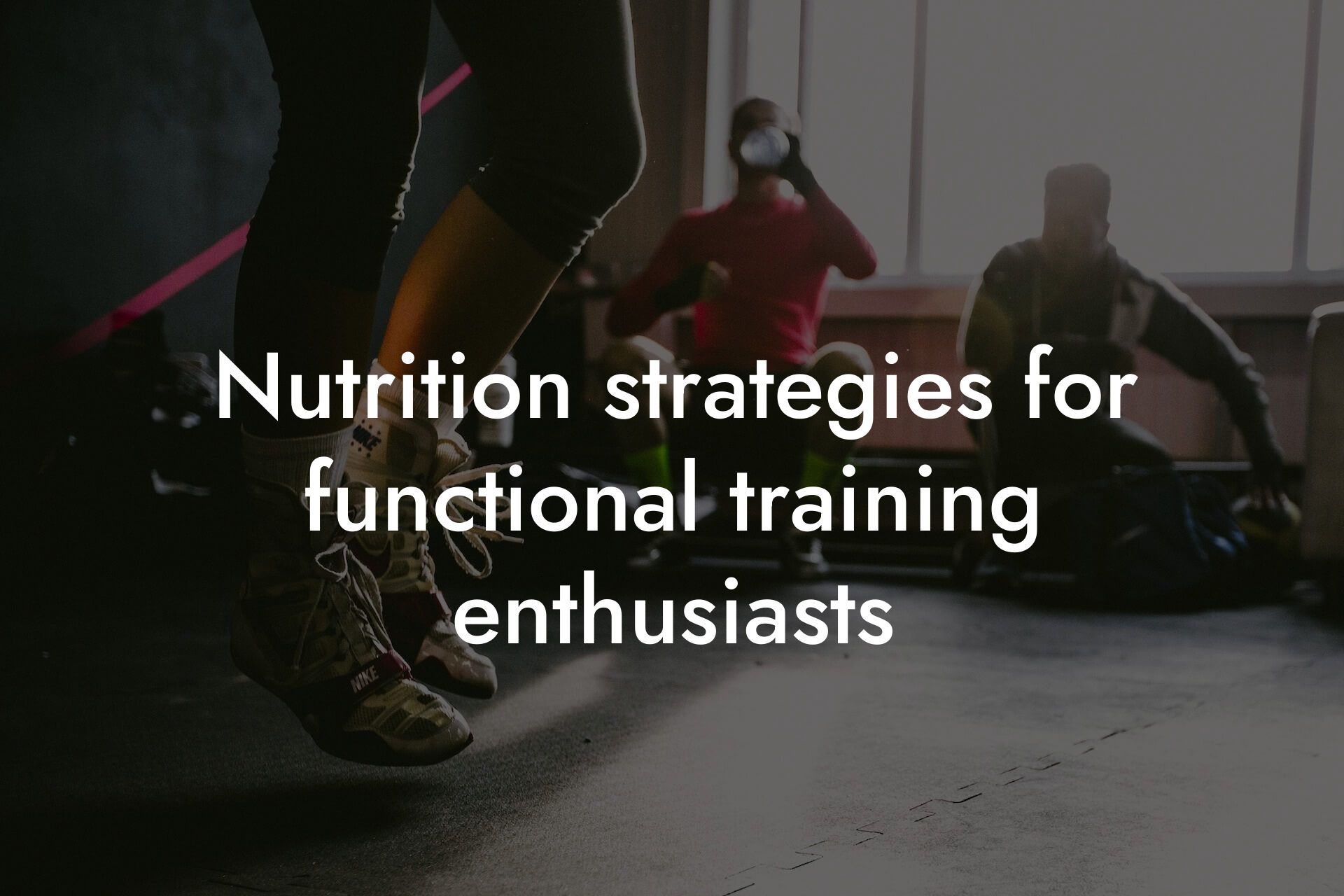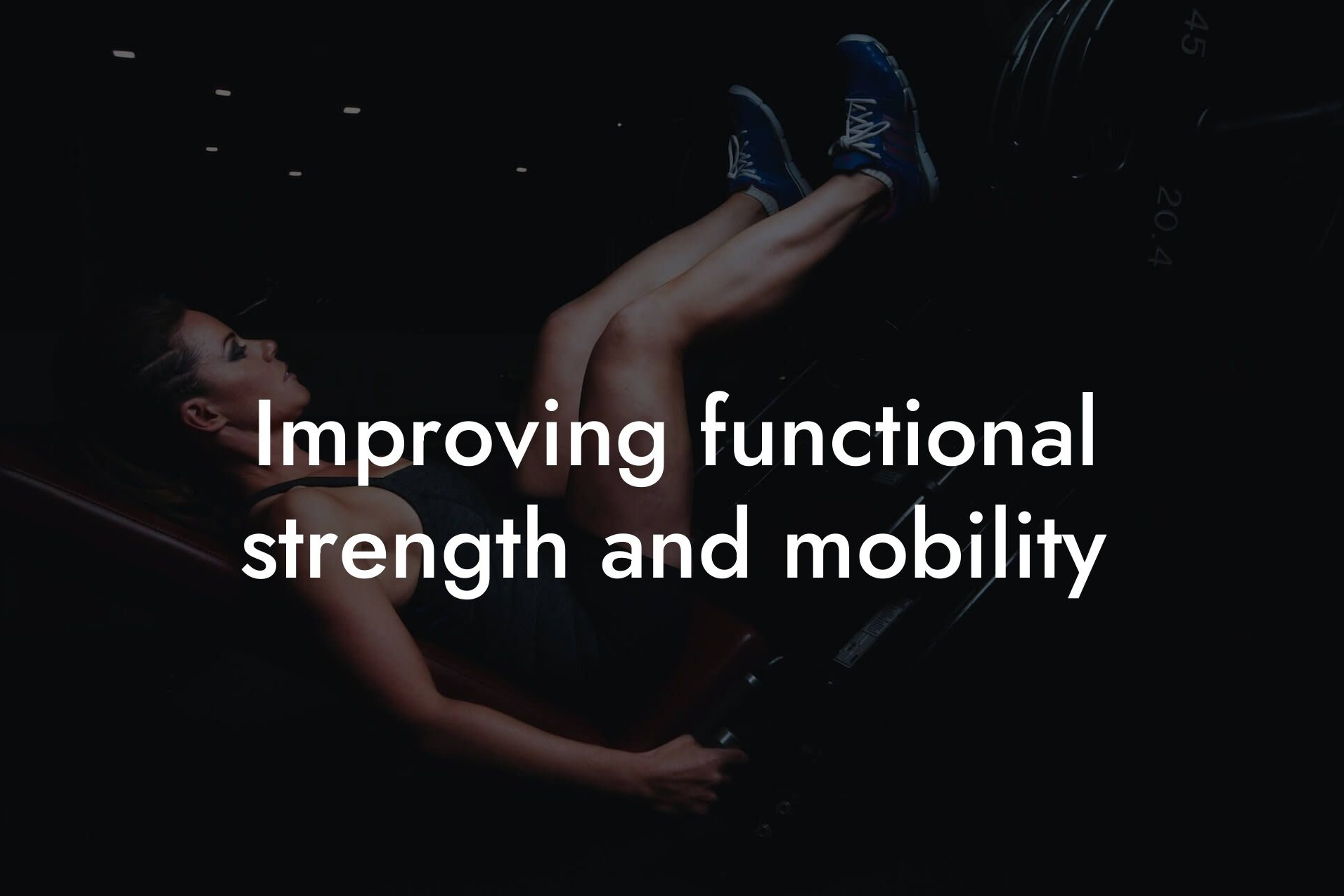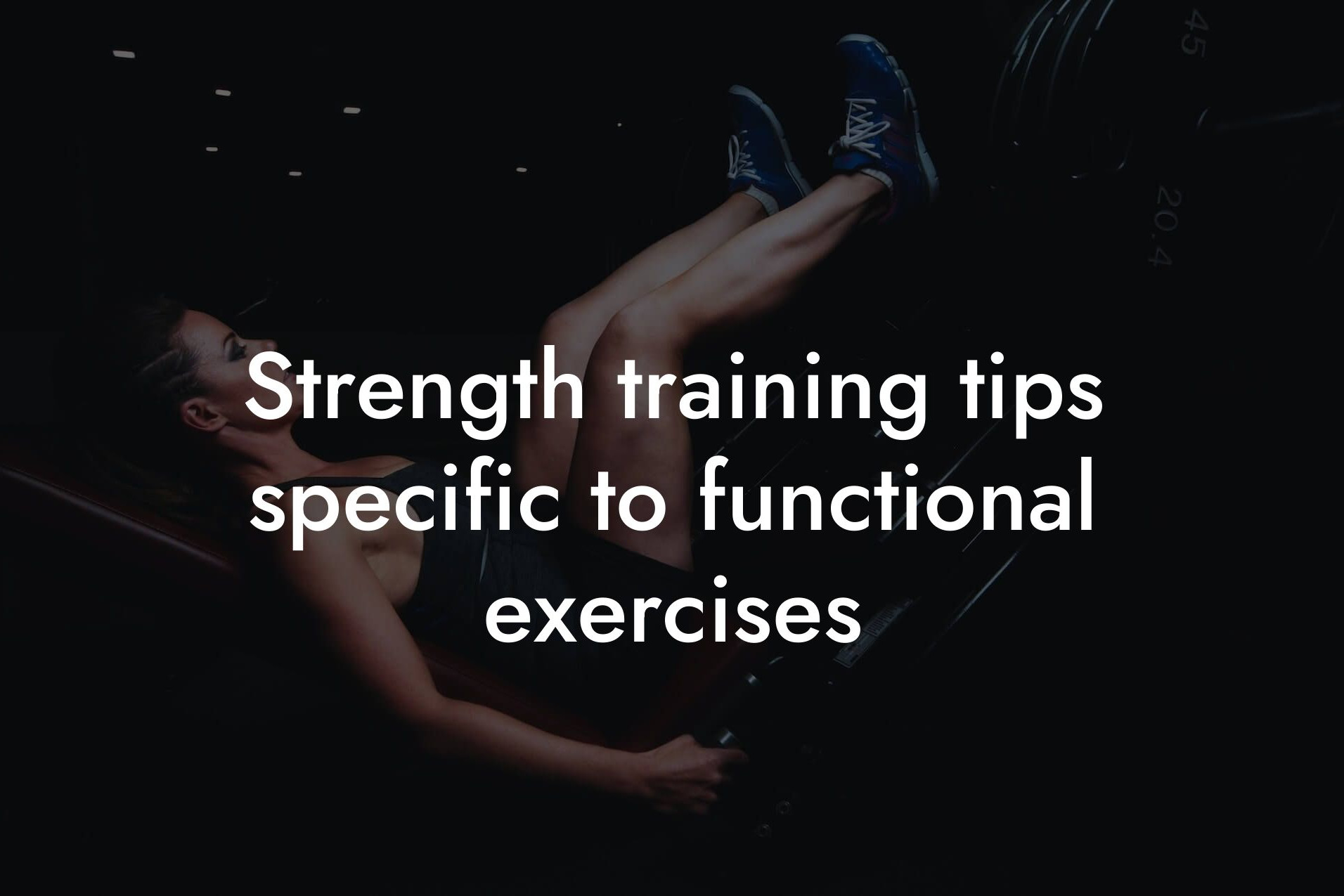As high-earning professionals, you understand the significance of maintaining a healthy and fit physique. While body fat percentage and muscle mass are often the primary focus, bone density is a crucial aspect of overall health that should not be overlooked. In this article, we'll delve into the importance of bone density in functional fitness, its impact on daily life, and how to maintain optimal bone health.
Table of Contents
What is Bone Density?
Bone density refers to the measure of the amount of minerals, such as calcium and phosphorus, present in your bones. It's a critical indicator of bone health, as it determines the strength and resilience of your skeletal system. Peak bone density is typically reached in early adulthood, and from then on, it's a gradual decline. However, with a healthy lifestyle and proper nutrition, it's possible to maintain strong bones and prevent excessive bone loss.
Why is Bone Density Important in Functional Fitness?
Bone density plays a vital role in functional fitness, as it directly affects your ability to perform daily activities and exercises. Strong bones provide a solid foundation for your muscles, tendons, and ligaments, enabling you to move efficiently and effectively. On the other hand, low bone density can lead to a higher risk of fractures, osteoporosis, and injuries, which can significantly impact your quality of life and fitness goals.
The Consequences of Low Bone Density
Low bone density can have severe consequences, including:
Osteoporosis: A condition characterized by brittle and porous bones, making them prone to fractures.
Fractures: Weakened bones are more susceptible to breaks, which can be debilitating and affect daily life.
Chronic Pain: Low bone density can lead to chronic pain, particularly in the back, hips, and knees.
Impaired Mobility: Weak bones can make it challenging to perform everyday activities, such as walking, running, or lifting.
Factors Affecting Bone Density
Several factors can influence bone density, including:
Genetics: Family history and genetic predisposition can affect bone density.
Nutrition: A diet lacking essential nutrients, such as calcium and vitamin D, can negatively impact bone health.
Hormonal Imbalance: Hormonal changes, particularly during menopause or andropause, can lead to bone loss.
Lack of Exercise: Inadequate physical activity, especially weight-bearing exercises, can contribute to bone loss.
Medical Conditions: Certain medical conditions, such as rheumatoid arthritis, can affect bone density.
How to Maintain Optimal Bone Density
Maintaining optimal bone density requires a combination of proper nutrition, regular exercise, and healthy lifestyle habits. Here are some tips to get you started:
Consume a Balanced Diet: Focus on calcium-rich foods, such as dairy products, leafy greens, and fortified cereals, and vitamin D-rich foods, like fatty fish, egg yolks, and mushrooms.
Engage in Weight-Bearing Exercises: Activities like running, jumping, and weightlifting can help strengthen bones.
Incorporate Resistance Training: Exercises that challenge your muscles, such as squats, lunges, and deadlifts, can help improve bone density.
Get Enough Sleep: Adequate sleep is essential for bone health, as it allows your body to repair and rebuild tissues.
Manage Stress: Chronic stress can lead to hormonal imbalances, which can negatively impact bone density.
DEXA Scans: The Gold Standard for Bone Density Measurement
A Dual-Energy X-ray Absorptiometry (DEXA) scan is the most accurate and reliable method for measuring bone density. This non-invasive test uses X-rays to measure the density of your bones, providing a detailed report on your bone health. At Tano Performance Group, we utilize DEXA scans as part of our comprehensive body assessment, providing you with a complete picture of your overall health and fitness.
Maintaining optimal bone density is crucial for functional fitness and overall health. By understanding the importance of bone density, identifying the factors that affect it, and taking proactive steps to maintain strong bones, you can ensure a healthy and active lifestyle. Remember, bone density is not just a concern for older adults; it's essential for individuals of all ages who want to perform at their best. Take control of your bone health today and invest in a DEXA scan at Tano Performance Group to get a comprehensive picture of your overall fitness.
Frequently Asked Questions
What is bone density, and why is it important for functional fitness?
Bone density refers to the measure of how dense and strong your bones are. It's a critical aspect of functional fitness because it directly affects your overall health, mobility, and ability to perform daily activities. Having strong bones enables you to move freely, exercise efficiently, and reduce the risk of injuries and fractures.
What are the consequences of low bone density?
Low bone density, also known as osteoporosis, can lead to a range of consequences, including increased risk of fractures, osteoarthritis, and even debilitating conditions like kyphosis. It can also affect your mental health, confidence, and overall quality of life.
How is bone density measured?
Bone density is typically measured using a dual-energy X-ray absorptiometry (DXA) scan, which is a non-invasive and painless test. The scan measures the density of your bones, usually in the hip and spine, and compares it to a standard score.
What is a normal bone density score?
A normal bone density score is typically above -1 standard deviation (SD) from the average score for a healthy young adult. A score between -1 and -2.5 SD indicates osteopenia, while a score below -2.5 SD indicates osteoporosis.
What are the risk factors for low bone density?
Risk factors for low bone density include genetics, age, gender, menopause, certain medical conditions, and lifestyle factors such as a sedentary lifestyle, smoking, and excessive alcohol consumption. Additionally, certain medications, such as corticosteroids, can also contribute to bone loss.
Can bone density be improved?
Yes, bone density can be improved through a combination of regular exercise, a balanced diet rich in calcium and vitamin D, and lifestyle changes. Resistance training, in particular, has been shown to be effective in building bone density.
What types of exercises are best for improving bone density?
Exercises that involve weight-bearing activities, such as running, jumping, and weightlifting, are excellent for improving bone density. Resistance training, high-impact aerobics, and exercises that target the core and hip muscles are also beneficial.
How often should I exercise to improve bone density?
Aim to exercise at least 3-4 times a week, with a minimum of 30 minutes per session. Consistency is key, so it's better to exercise regularly for shorter periods than to try to cram all your exercise into one or two long sessions per week.
What is the role of nutrition in bone density?
Nutrition plays a critical role in bone density, with calcium and vitamin D being essential nutrients for bone health. A diet rich in fruits, vegetables, whole grains, and lean protein sources can help support bone health.
Can supplements help improve bone density?
While supplements can be helpful, it's essential to consult with a healthcare professional before adding any supplements to your routine. Calcium and vitamin D supplements may be beneficial, but it's crucial to ensure you're getting the right amounts and types for your individual needs.
How does menopause affect bone density?
Menopause can lead to a significant decline in bone density due to the decrease in estrogen levels. This decline can increase the risk of osteoporosis and fractures, making it essential for women to prioritize bone health during this stage of life.
Can bone density be improved in older adults?
Yes, bone density can still be improved in older adults through a combination of exercise, nutrition, and lifestyle changes. While the rate of improvement may be slower, it's never too late to start taking steps to support bone health.
What is the relationship between bone density and body composition?
Bone density is closely linked to body composition, with a higher percentage of lean muscle mass typically corresponding to higher bone density. Maintaining a healthy body composition through a balanced diet and regular exercise can help support bone health.
Can bone density be affected by stress?
Chronic stress can have a negative impact on bone density by increasing the production of cortisol, a hormone that can break down bone tissue. Managing stress through relaxation techniques, such as meditation and deep breathing, can help mitigate this effect.
How does sleep affect bone density?
Getting adequate sleep is essential for bone health, as it allows your body to repair and rebuild bone tissue. Aim for 7-9 hours of sleep per night to support bone density.
Can bone density be improved through yoga and Pilates?
Yes, yoga and Pilates can be beneficial for bone density, particularly if they involve weight-bearing activities and exercises that target the core and hip muscles. However, it's essential to modify exercises to suit your individual needs and abilities.
What is the importance of bone density in athletes?
Bone density is critical for athletes, as it directly affects their performance, injury risk, and long-term health. Athletes with high bone density tend to have a lower risk of fractures and osteoporosis, allowing them to perform at their best.
Can bone density be improved in individuals with osteoporosis?
Yes, bone density can still be improved in individuals with osteoporosis through a combination of medication, exercise, and lifestyle changes. It's essential to work with a healthcare professional to develop a personalized plan.
How does bone density affect mental health?
Bone density can have a significant impact on mental health, particularly in individuals with osteoporosis. The fear of fractures and loss of independence can lead to anxiety, depression, and reduced quality of life.
What are the long-term benefits of maintaining good bone density?
Maintaining good bone density can have a range of long-term benefits, including reduced risk of fractures, improved mobility, and enhanced overall health and well-being. It can also reduce the risk of chronic diseases, such as osteoarthritis and kyphosis.
How can I get started with improving my bone density?
Start by consulting with a healthcare professional to assess your bone density and develop a personalized plan. Begin with small changes to your diet and exercise routine, and gradually increase your intensity and frequency over time.
What resources are available to support bone density improvement?
There are many resources available to support bone density improvement, including healthcare professionals, fitness experts, and online resources. Tano Performance Group is a valuable resource for high-earning professionals looking to improve their physical appearance, body fat, physique, and bone density.
Here are some related articles you might love...
- Nutrition strategies for functional training enthusiasts
- Improving functional strength and mobility
- Strength training tips specific to functional exercises
- Preventing injuries in functional training: A comprehensive guide
- Balancing strength, speed, and flexibility in functional training
- Maintaining muscle recovery with functional training
- How DEXA scans can benefit functional training athletes
- The role of body composition in functional training performance
- Reducing body fat for better functional training results
Zak Faulkner
Zak Faulkner is a leading authority in the realm of physical health and body composition analysis, with over 15 years of experience helping professionals optimise their fitness and well-being. As one the experts behind Tano Performance Group, Zak has dedicated his career to providing in-depth, science-backed insights that empower clients to elevate their physical performance and overall health.
With extensive knowledge of DEXA technology, Zak specializes in delivering comprehensive body assessments that offer precise data on body fat, muscle mass, bone density, and overall physique. His expertise enables individuals to make informed decisions and achieve their fitness goals with accuracy and confidence. Zak’s approach is rooted in a deep understanding of human physiology, combined with a passion for helping clients unlock their full potential through personalised strategies.
Over the years, Zak has earned a reputation for his commitment to excellence, precision, and client-focused service. His guidance is trusted by top professionals who demand the best when it comes to their health. Whether advising on fitness programs, nutritional strategies, or long-term wellness plans, Zak Faulkner’s insights are a valuable resource for anyone serious about taking their health and fitness to the next level.
At Tano Performance Group, Zak continues to lead our Content Team revolutionising how professionals approach their physical health, offering unparalleled expertise that drives real results.




